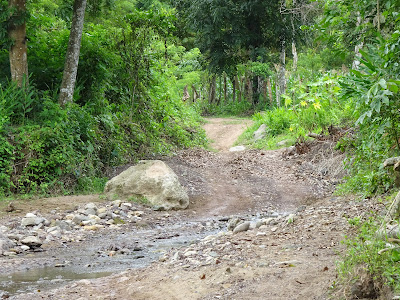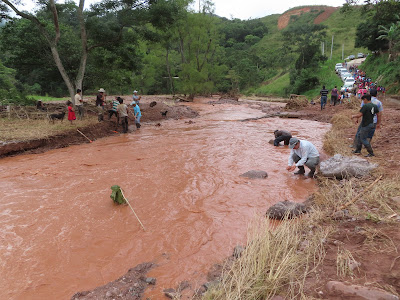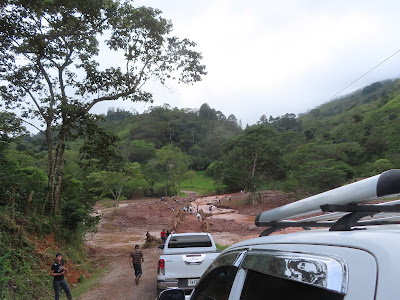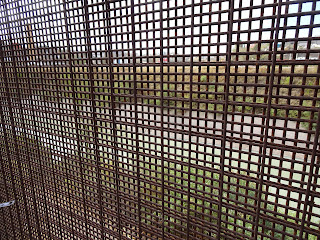I was going through files on my computer and came across this which I don't think I published, I made a few quick revisions and offer this as a reflection on one aspect of my ministry.
December 22, 2020, I went to Granadillal for the baptism of eight children (between 8 and 12 years old.) I had met with them about two week ago. The pastor had asked me to meet with them to see if they were ready, understanding what baptism means. That meeting was good.Today it’s been cloudy and rainy and a bit cool. I really had second thoughts about going up to Granadillal. It’s about 45 minutes from home and the roads were slippery. I really wanted to just find a place to sit and read, but my better judgment got me moving.
We had a Celebration of the Word with Communion.
Before everything started, I talked with the kids and even asked their input on a trivial matter: Should I wear a purple stole because it’s Advent or should I wear white since it’s a sacramental celebration? Six said purple and two said white. I compromised. I wore white up until the actual baptism. Liturgists may cringe but I used the occasion to model compromise.
After the Celebration, it was time for pictures – with and without masks. I was in photos of the whole group as well as with some individual kids and their godparents.
By the way, I always brought masks to celebrations and give them away. I don’t want to complain without giving people a way to respond.
As the photos progressed, I noticed one kid who had come with an elderly woman as his godmother. He was in some of the other photos but there was none with him and his godmother and me alone. I asked them if they wanted a photo. They agreed – a bit reluctantly, I think.
As we found a place by the altar to take the photo, another kid and his godfather also came to be in a photo with me.
After they left, I took a selfie with the kid, Fredy, and his godmother, Blanca Rosa.
I had the sense that they were poorer than most of the other folks (who are by no means rich or even middle class).
Why did I do this?
I think it’s revealing a part of myself that I am discovering – a part that actually goes back many years.
I have a sense of trying to connect with those at the margins.
A priest friend of mine, whom I worked with several times, talked about connecting with the back row Catholics. In a campus ministry setting, that meant saying hello to everyone, especially those who were not involved in the parish events.
But this is more than that.
I noticed this a few weeks before this visit to Granadillal at a Sunday Celebration of the Word here in Plan Grande. It was the coffee harvest season and there are a fair number of young men who have been brought in from other parts of the country. In previous years, people were brought in from Guatemala, but with border restrictions growers have had to seek other sources of workers.
Before the Celebration one Sunday I noticed a family whom I hadn’t seen before who were very clearly indigenous. I went over and talked with them. I later saw a few other new folks and went over and talked with them, just to welcome them.
This reaching out is something that seems to be so much a part of my ministry. A few months ago, I stopped and spent some time talking with a woman and her son, asking them about their lives.
As I drove away, I asked myself why I do this, stopping and talking with people.
I think it’s really important to spend time with people, especially those who do not seem to recognize their dignity, their worth. I want them to know that someone thinks they are important and wants to listen to them.
But as I continued to drive, I realized there was something more basic. I do this because I love them.
I am an introvert, but I find this type of welcoming a challenge that gives me life. If I can give someone a sense of welcome, a sense that he or she is valued, that gives me joy.
It is a gift that God has given me, and I am grateful.
The other thing I’m noticing is that I use a sense of humor (that I’m sure is a gift from my father) that I often use to welcome people or to gently challenge them.
That’s another reflection that I think is related to this one.































